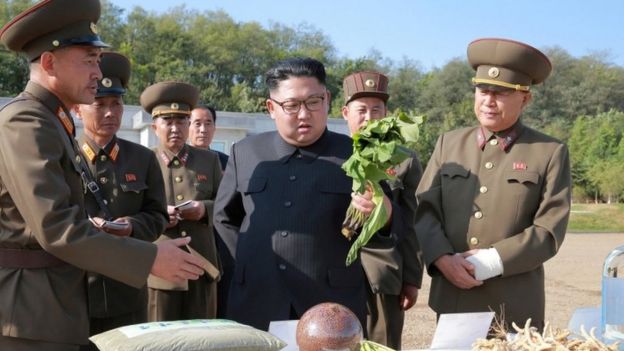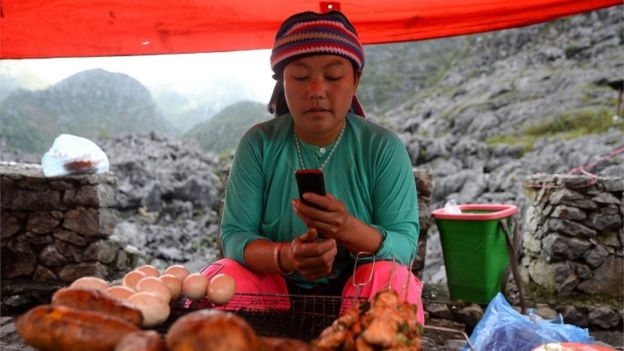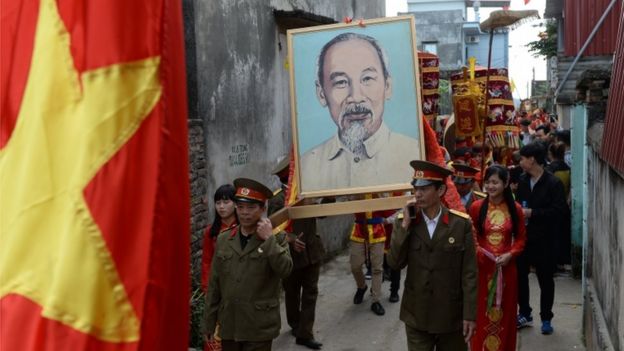
North Korea’s Kim Jong-un will sit down for a second time with US President Donald Trump and the world’s eyes will be focused on their nuclear negotiations, but Mr Kim will also be taking a very close look at the host country, Vietnam.
Like North Korea, it’s a one-party Communist state. But since 1986, Vietnam has opened up its economy and its growth has been one of the fastest in Asia – the World Bank says its GDP growth rate could reach 6.6% this year.
And the Vietnamese Communist party has done this while retaining absolute power.It allows no opposition groups, maintains “absolute and direct leadership” over the army and the police and has conducted, says human rights group Amnesty International, a “relentless crackdown on dissent”.

Vietnam ranks just above North Korea at the bottom of the 2018 World Press Freedom Index by Reporters Without Borders.
But hosting such a major summit is certainly a sign that Vietnam has come a long way since the end of the Vietnam War in 1975. A booming economy and prominent global role with no let-up on social controls may well appeal to Mr Kim.
Vietnam’s success story may has been long touted as an example for isolated North Korea, but there is little evidence that Kim Jong-un’s late father, Kim Jong-il, ever took the idea seriously. He never, for example, visited Vietnam.
But Kim Jong-un has shown signs of being more open to change.

Since he took over in 2011, there have been limited reforms in the agricultural sector, for example, allowing farmers to keep some of what they harvest. And last April, Mr Kim claimed that as North Korea had successfully achieved nuclear capability, it could now focus on improving living standards.
It is unclear if or when this delicate combination of tight political control and social relaxation can be applied in North Korea.
Still, if Kim Jong-un wants to follow a model of economic reform with limited political liberalisation, Vietnam, due to its size, may be a more relevant example than, say, China.
“Vietnam has learned how to pursue a multi-directional foreign policy, to avoid being dependent on one economy, and to build modern systems in financing and banking,” said Le Dang Doanh.
He added that if North Korea is serious about change, there were also less positive lessons to learn.
“What Vietnam has not done so well in managing the natural resources and fighting corruption may also be useful for North Korea,” he said.
He also pointed out that in his meetings with North Korean officials, they’ve been keen to ask whether there had been internal conflicts among Vietnamese leaders about their reforms, and how Vietnam managed this, which may give a clue to one of the biggest challenges to North Korean change.